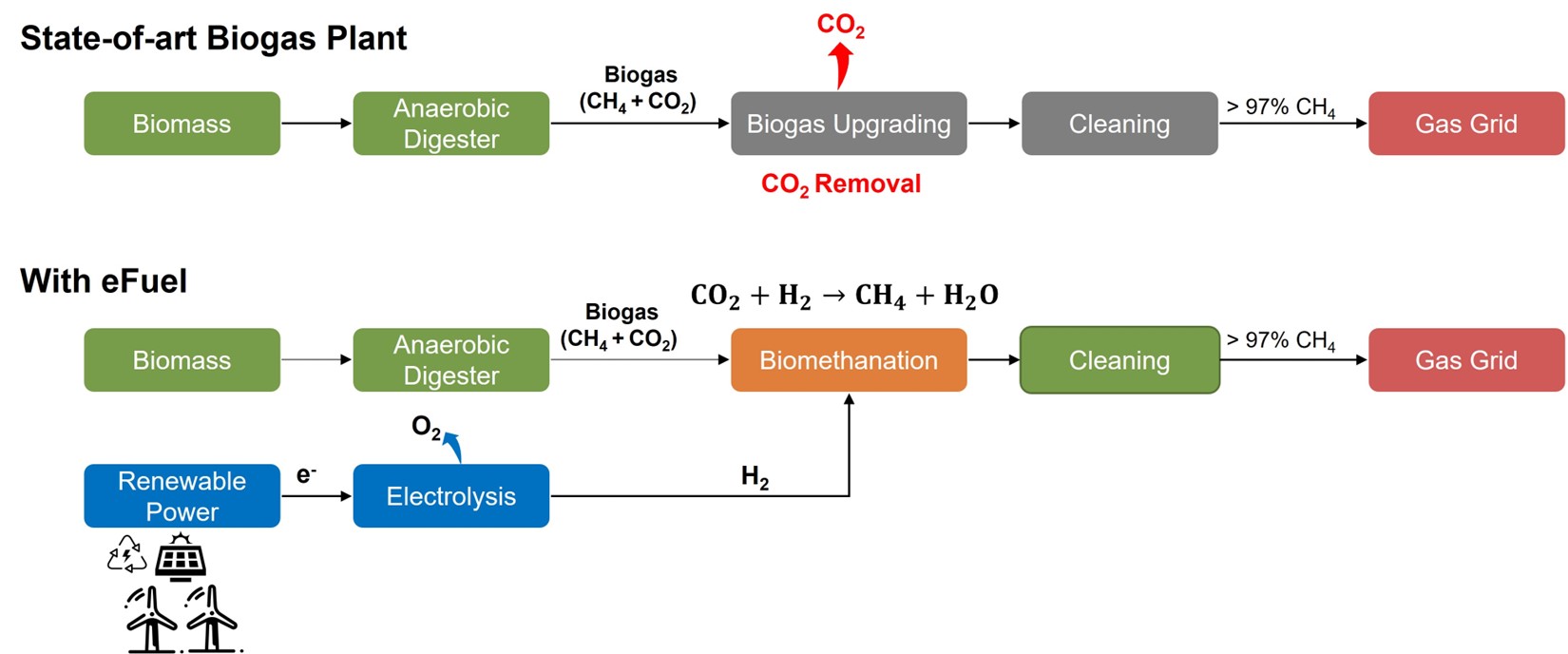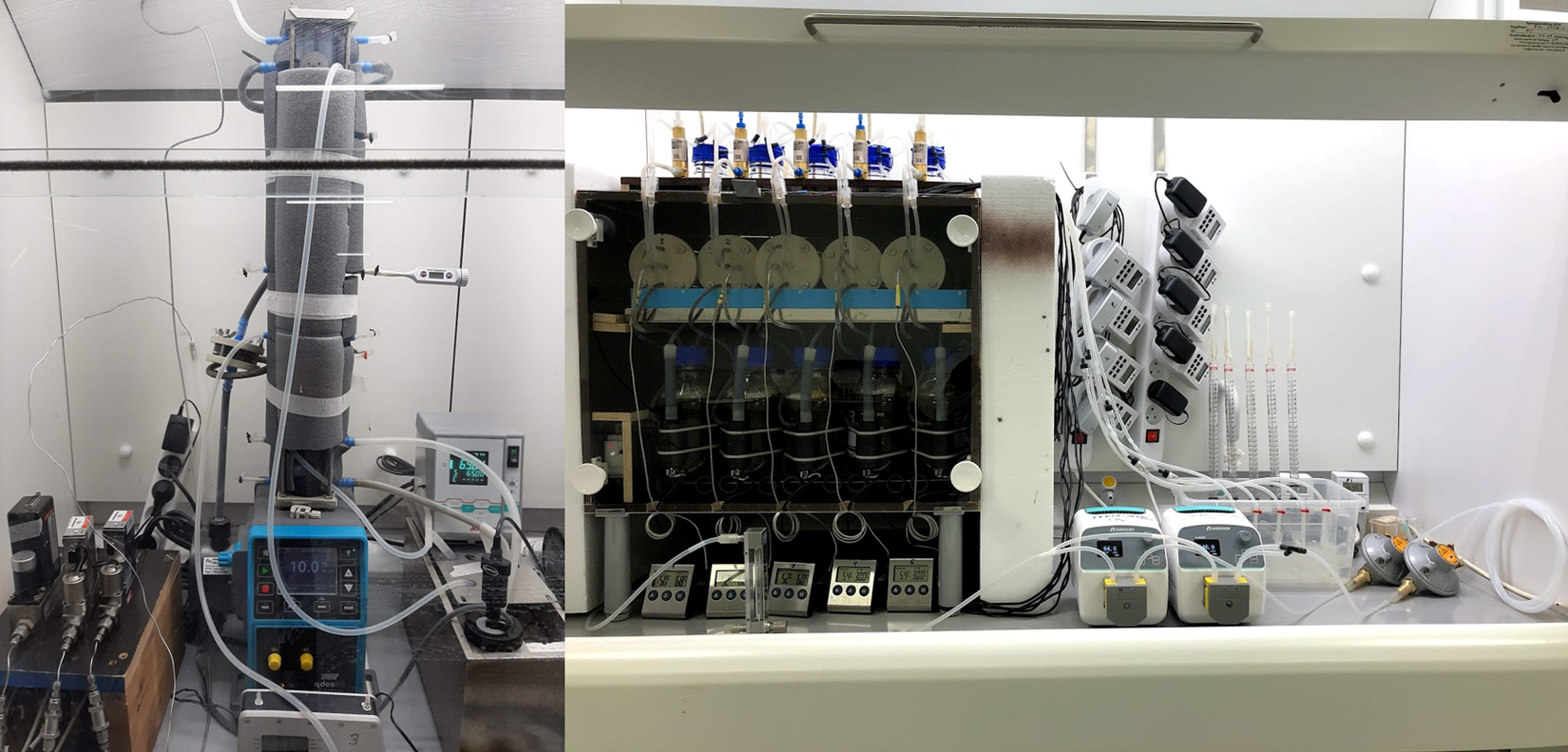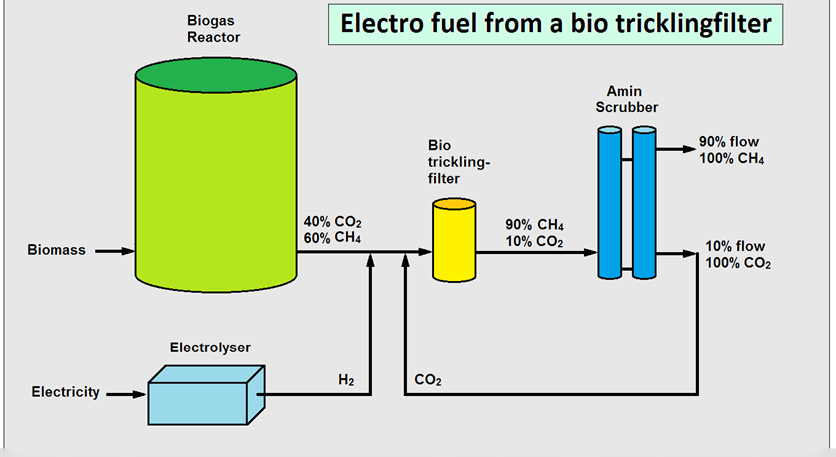The focus of the research is the application of chemical and biochemical engineering to design and develop innovative carbon capture technologies that are derived by excess renewable power, i.e., Power-to-X. Most of the research is interdisciplinary and is conducted in collaboration across different sections at SDU and companies. We are actively doing research in the following areas:
- Developing novel reactor configurations for direct CO2 capture and conversion to methane—Power-to-Methane
- Developing biochemical reactors for biomethane conversion to high-value chemicals
- Integration of pyrolysis with biomethanation
- Process design and simulations of chemical-, bio-chemical processes for CCU and Power-to-X
We have expertise in developing bioreactors for carbon capture and conversion. One example is ‘eFuel’ project, funded by EUDP, where we do research on the conversion of CO2 from biogas using H2 generated from renewable power, i.e., Power-to-X. CH4 is to be distributed through the national gas grid and used for trucks and ships or converted to jet-fuel. eFuel project focused on developing a bio-trickling filter reactor technology for the conversion of CO2 and H2 to CH4. The technology has been optimized at lab and pilot scale.

Facilities for CCU and Power-to-X
SDU Biotechnology is equipped with advanced bioreactors, lab-scale pyrolysis setup, and state-of-the-art analytical instruments. The lab is “ATEX” certified for safe working environment to avoid explosive atmosphere according to EU Directive 1999/92/EC ('ATEX Workplace Directive'), specifically to safe use of hydrogen for Power-to-X applications. Our analytical facilities include:
- Lab-scale trickle bed reactors for biomethanation of CO2
- Lab-scale bioreactors
- Lab-scale pyrolysis and gasification setup
- Gas composition measurement using GC-FID and GC-TCD.
- Liquid media composition analysis using GC-FID and HPLC with RID and VWD.
- Ion chromatography
- Ion-trap mass spectrometer
- LC-QTOF and LC-QQQ MS
- Flame ionization atomic absorption spectrometer

Professor, head of department Jens Ejbye Schmidt
Professor, head of Life Cycle Engineering, Henrik Wenzel
Executive officer, Lars Yde
Assistant professor , Muhammad Tahir Ashraf
